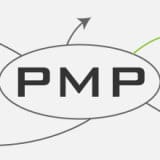PMBOK Guide 6 vs PMBOK Guide 5: What Have Been Changed?

The PMBOK® Guide 6th Edition has been published 6th September 2017. The PMP Exam will be ONLY updated on 26th March 2018 to be based on the PMBOK® Guide 6th Edition. If you begin your exam preparation now, the PMP Exam will be based on PMBOK® Guide 5th edition by the PMP Exam update.
Summary: PMI updates the PMBOK® Guide and the PMP Exam every several years as the practices of project management evolves. The new PMBOK® Guide edition (i.e. the 6th edition) has been published in the 3rd quarter of 2017. Just like the update from PMBOK® Guide 4 to PMBOK® Guide 5, many changes are expected but the overall project management framework will pretty remain the same as the PMBOK® Guide 5 has already described a framework that is quite comprehensive and suited to real-world practices. Below are the key differences we have observed with the evaluation version of PMBOK® Guide 6.
But it worths to point out that the exam is not restricted to the PMBOK® Guide only (as the PMBOK® Guide is just a part of the knowledge that is required to answer the exam questions correctly), additional study materials and exam prep books are needed if you would like to pass the exam in first try (who don’t?). So, the update to PMBOK® Guide does NOT represent a complete overhaul of the PMP Exam. Many of the project mangement knowledge you currently have will still be very useful to passing the exam.
Article Highlights
What is the Current Status of PMBOK® Guide 6?
The PMBOK® Guide 6 has been released on 6th September 2017. Translations in 11 additional languages are available from October 2017. PMI members can now download a free copy of the PDF of PMBOK® Guide 6th edition and the Agile practice guide from PMI website for free!
What has been Changed in PMBOK® Guide 6?
- More emphases will be placed on Agile,adaptive and iterative project management practices.
- A new chapter on the new PMI Talent Triangle (skillsets organizations demand from project managers — technical, leadership, strategic and business management) will be included in the PMBOK® Guide 6.
- Project Management processes are now aligned with the 5 Process Groups (Initiating, Planning, Executing, Monitoring & Controlling, and Closing) instead of the 10 Knowledge Areas as in PMBOK® Guide 5
- NO new Knowledge Areas [Good News!] , still the same 10 Knowledge Areas:
- Project Integration Management
- Project Scope Management
- Project Schedule Management (formerly Project Schedule Management)
- Project Cost Management
- Project Quality Management
- Project Resource Management (formerly Project Human Resource Management)
- Project Communications Management
- Project Risk Management
- Project Procurement Management
- Project Stakeholders Management
- 3 New Processes are added and 2 Processes are deleted:
- Manage Project Knowledge (in the Project Integration Management Knowledge Area of Executing Process Group)
- Implement Risk Responses (in the Project Risk Management Knowledge Area of Executing Process Group)
- Control Resources (in the Project Resource Management Knowledge Area of Monitoring & Controlling Process Group)
Close Procurements(grouped with Close Project or Phase)Estimate Activities Resources(grouped with Estimate Durations as they are often treated as a group in PMBOK® Guide 5)
- More precise distinction between Project Management Plan and Project Documents
- Some changes to the process names
- Manage Quality (formerly Manage Quality — a term often misunderstood by many Aspirants)
- Plan Resource Management (formerly Plan Human Resources Management — resource includes human resources and more)
- Monitor Communications (formerly Control Communications — monitor is more appropriate)
- Plan Stakeholder Engagement (formerly Plan Stakeholder Management)
- Monitor Stakeholder Engagement (formerly Control Stakeholder Engagement — PMBOK® Guide 6 adopts a more precise definitions for monitor and control)
- ITTOs (Inputs, Tools & Techniques, Outputs) are given a lesser emphasis in PMBOK® Guide 6 [Good News!] as many Aspirants are not sure how to remember the numerous ITTOs for the PMP Exam (In fact, ITTOs are seldom asked directly in the PMP Exam).
How the Changes Affect PMP Exam?
For Aspirants, if you have begun your studies based on the PMBOK® Guide 5 for your exam now, no panic, there is still plenty of time for you to take and pass the exam based on the current version of PMBOK® Guide.
If you have understood PMBOK® Guide 5 well and you will find the structure of PMBOK® Guide 6 very familiar once it is published in 2017. You would just need to learn the new project management processes as well as some changes in the naming of the processes/knowledge areas. Your training and experience in project management will surely help you with your PMP Exam preparation no matter which edition of PMBOK® Guide you are tested on. And the very good news is that the ITTOs (Inputs, Tools & Techniques, Outputs) are now given the same weight as in PMBOK® Guide 5 (though the PMP Exam based on PMBOK® Guide 5 was not heavy on ITTOs — there are just several questions on ITTOs in the exam paper).
For current certification holders, no immediate actions would need to be taken though if you would like to keep abreast of the changes in the project management practices by studying the new PMBOK® Guide (which will also earn them PDUs).
PMBOK® Guide Free Download
As always, PMI members will be able to download the PMBOK® Guide for free on PMI website. You can download a PDF copy of the new PMBOK® Guide 6th edition as well as the new Agile Practice Guide from PMI website for free if you are a paid PMI member.
Wish you PMP success in 2018!
Most Popular PMP Certification Exam Articles
- My Exam Prep Tips and Free Resources (I got 4P and 1 MP)
- How to Get 35 Contact Hours Fast and Easy?
- Detailed Comparision of online PMP Courses
- Over 1000+ FREE Quality Mock Exam / Practice Questions
- A FREE Guide to Formulas and Calculation (with explanation and sample questions)
- 47 Commonly Confused Terms with detailed explanation




 Hi, my name is Edward Chung, PMP, PMI-ACP®, ITIL® Foundation. Like most of us, I am a working professional pursuing career advancements through Certifications. As I am having a full-time job and a family with 3 kids, I need to pursue professional certifications in the most effective way (i.e. with the least amount of time). I share my exam tips here in the hope of helping fellow Certification aspirants!
Hi, my name is Edward Chung, PMP, PMI-ACP®, ITIL® Foundation. Like most of us, I am a working professional pursuing career advancements through Certifications. As I am having a full-time job and a family with 3 kids, I need to pursue professional certifications in the most effective way (i.e. with the least amount of time). I share my exam tips here in the hope of helping fellow Certification aspirants!






Thanks
Thanks Edward for the great article.
I am going to have my 2nd attempt on PMP exam in coming July.
I’ve read PMBOK (6th edition) and planning to read Rita’s book (8th edition), do you think is it enough?
Have faith in yourself! I am sure you will do much much better this time. I would highly advise you to attempt as many mock exams as possible which is one of the most important things to do to help you pass the exam.
Wish you PMP success! Do let me share your good news!
I would suggest you use 9th edition of Rita which is based on 6th edition of PMBOK.
What it mean ? “now aligned “?
Project Management processes are now aligned with the 5 Process Groups (Initiating, Planning, Executing, Monitoring & Controlling, and Closing) instead of the 10 Knowledge Areas as in PMBOK® Guide 5
Actually that’s a slight change of emphases, not that substantial indeed. This means that the 5 Process Groups will be mentioned more now in PMBOK Guide 6 than 5.